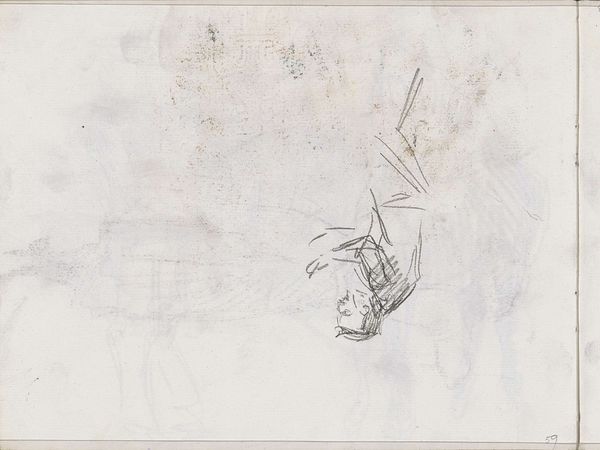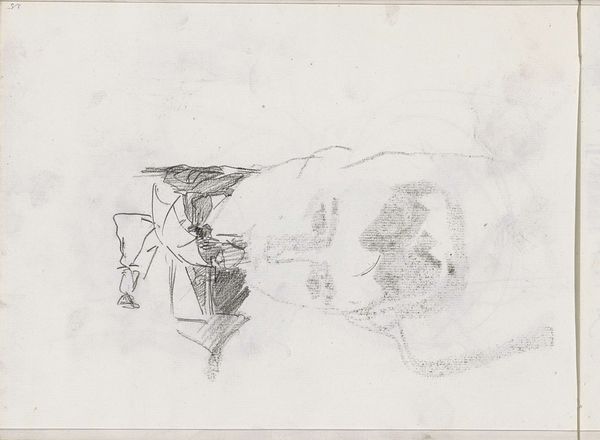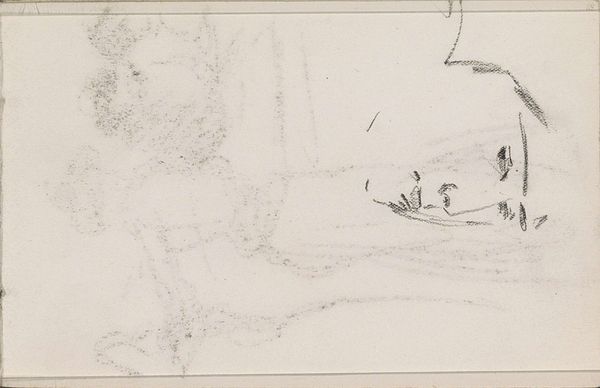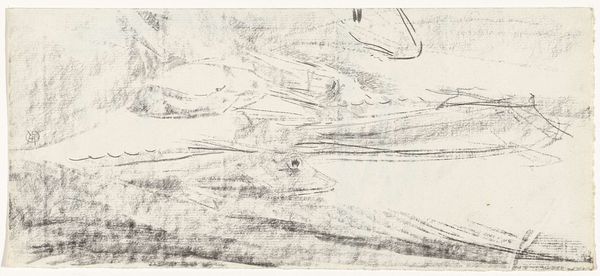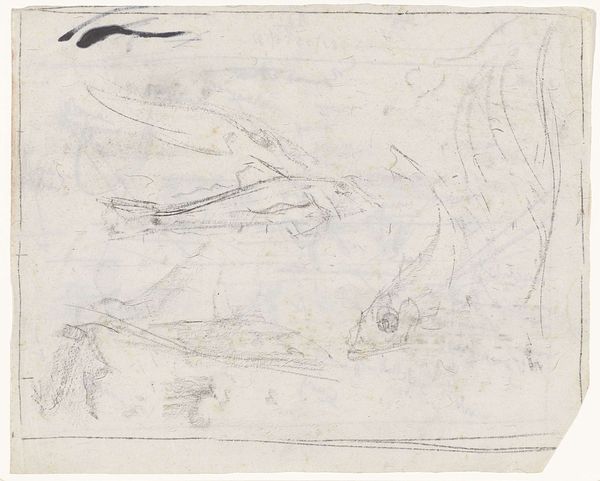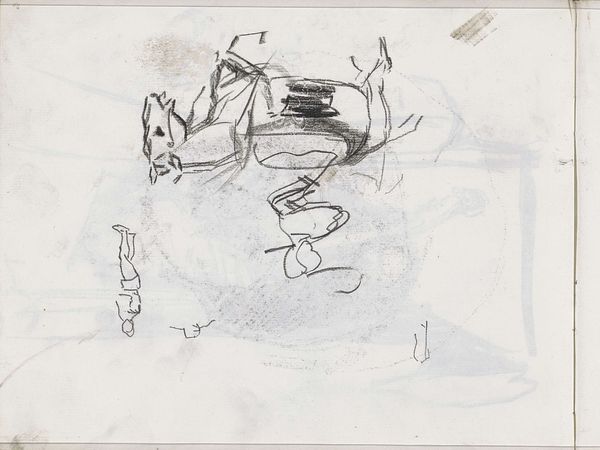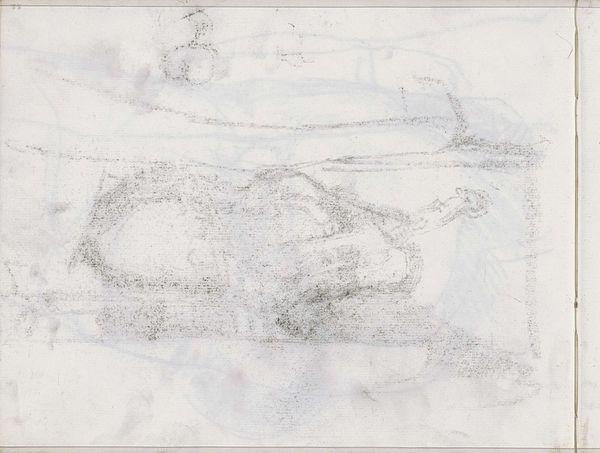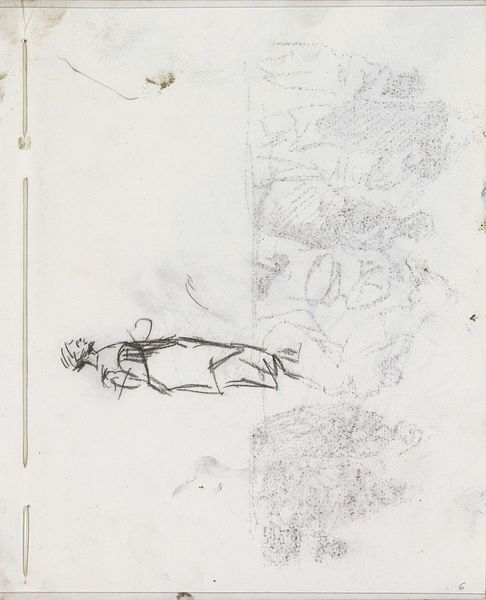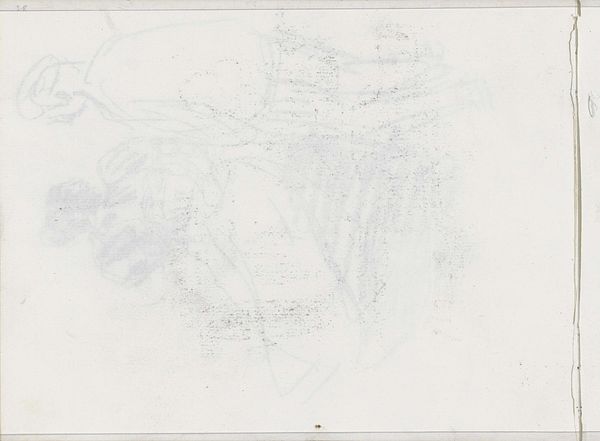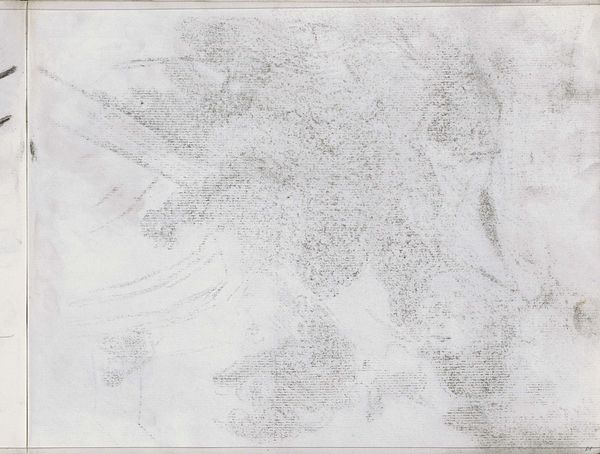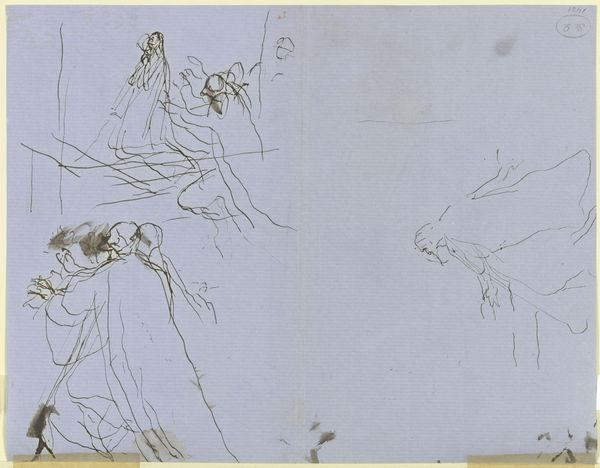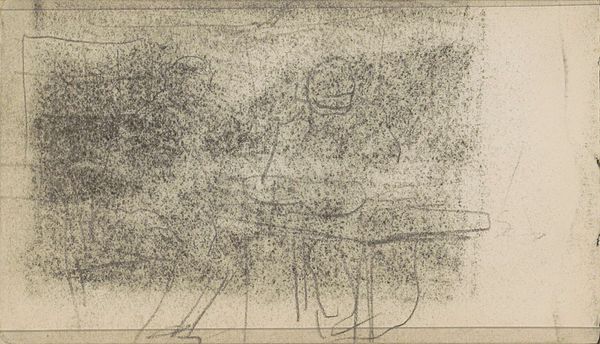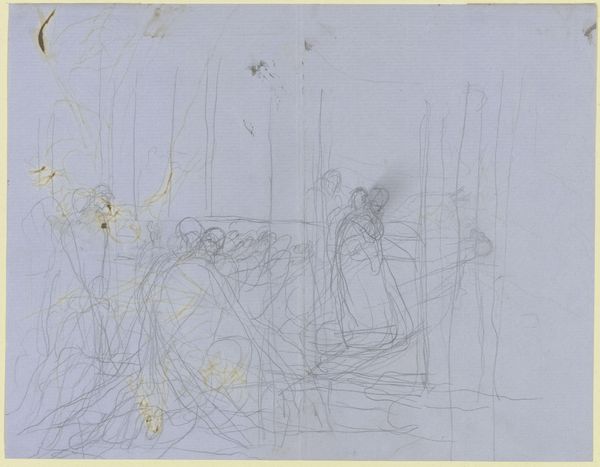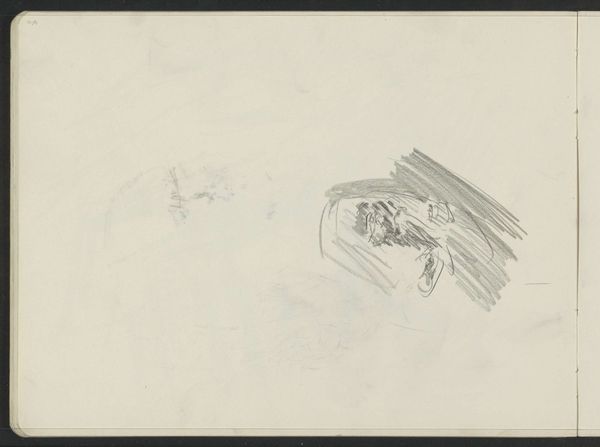
Copyright: Rijks Museum: Open Domain
Curator: Here we have Isaac Israels' "Paardrijder," likely created between 1875 and 1934. It's a pen and pencil drawing on paper, held within the collection of the Rijksmuseum. Editor: The frenetic energy practically jumps off the page, doesn't it? It's so immediate, so raw, that I feel like I'm standing right beside Israels as he's capturing this moment. There is a great level of detail considering how incomplete it seems. Curator: Absolutely. Israels was known for his impressionistic style, even in his sketches. This work, with its light pencil strokes and somewhat sketchy execution, reminds me of the fleeting nature of memory itself. Editor: Do you think that sketchy style perhaps reflects the subject? In that context, might this work even be perceived as political statement? It’s hard to be certain whether it shows leisure or active pursuit, since the message seems to lie in its incompleteness. Curator: I think there's definitely something to be said about that perceived ambiguity of a political message in the context of leisure. We see so many depictions of privileged individuals presented in popular visual culture, such as landscape, from this period. Maybe the sketch implies more active observation, less about propaganda for the rider than an impression of action. I find this to also extend from visual elements such as light and lines, but that’s just my impression. Editor: Regardless, the visual vocabulary feels undeniably modern. But maybe that's because we're viewing it through a contemporary lens. This begs us to remember how history is written by those in power, with the underrepresented often lost to the confines of private sketchbooks and unseen art. Curator: Very true. The dynamism that captures your attention and then forces your eye into areas void of that energy. Even in its incompleteness, "Paardrijder" captures a particular perspective on both action and class identity from its historical moment. Editor: Looking at this drawing now, I'm intrigued to explore what other untold stories might be lurking in sketchbooks and unfinished artworks around the world, each with their own unique cultural and psychological imprint. Curator: Precisely, and each sketch a potential seed for new narratives, new understandings. It seems we’re always finding and constructing.
Comments
No comments
Be the first to comment and join the conversation on the ultimate creative platform.
